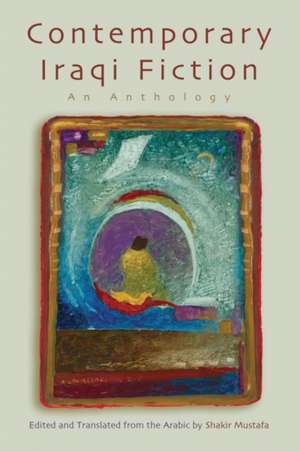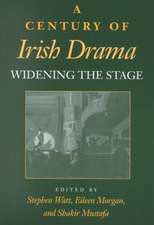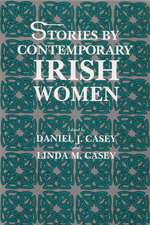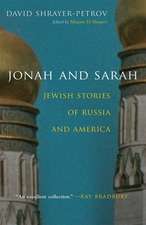Contemporary Iraqi Fiction
Editat de Shakir Mustafaen Limba Engleză Paperback – 31 ian 2018
While each voice is distinct, they are united in writing about a homeland that has suffered under repression, censorship, war, and occupation. Many of the selections mirror these grim realities, forcing the writers to open up new narrative terrains and experiment with traditional forms. Muhammad Khodayyir's surrealist portraits of his home city, Basra, in an excerpt from Basriyyatha and the magical realism of Mayselun Hadi's "Calendars" both offer powerful expressions of the absurdity of everyday life. Themes range from childhood and family to war, political oppression, and interfaith relationships. Mustafa provides biographical sketches for the writers and an enlightening introduction, chronicling the evolution of Iraqi literature.
| Toate formatele și edițiile | Preț | Express |
|---|---|---|
| Paperback (1) | 109.10 lei 3-5 săpt. | |
| Syracuse University Press – 31 ian 2018 | 109.10 lei 3-5 săpt. | |
| Hardback (1) | 129.69 lei 3-5 săpt. | |
| Syracuse University Press – 30 apr 2008 | 129.69 lei 3-5 săpt. |
Preț: 109.10 lei
Nou
Puncte Express: 164
Preț estimativ în valută:
20.88€ • 22.67$ • 17.54£
20.88€ • 22.67$ • 17.54£
Carte disponibilă
Livrare economică 01-15 aprilie
Preluare comenzi: 021 569.72.76
Specificații
ISBN-13: 9780815611028
ISBN-10: 0815611021
Pagini: 232
Dimensiuni: 153 x 231 x 17 mm
Greutate: 0.32 kg
Editura: Syracuse University Press
ISBN-10: 0815611021
Pagini: 232
Dimensiuni: 153 x 231 x 17 mm
Greutate: 0.32 kg
Editura: Syracuse University Press
Notă biografică
Shakir Mustafa is Teaching Professor in the World Languages Center at Northeastern University.He co-edited A Century of Irish Drama: Widening the Stage and Seventeenth-Century English Poetry: An Introductory Course.
Descriere
Gathers work from sixteen Iraqi writers, all translated from Arabic into English. Shedding a bright light on the rich diversity Iraqi experience, Shakir Mustafa has included selections by Iraqi women, Iraqi Jews now living in Israel, and Christians and Muslims living both in Iraq and abroad. While each voice is distinct, they are united in writing about a homeland that has suffered.










